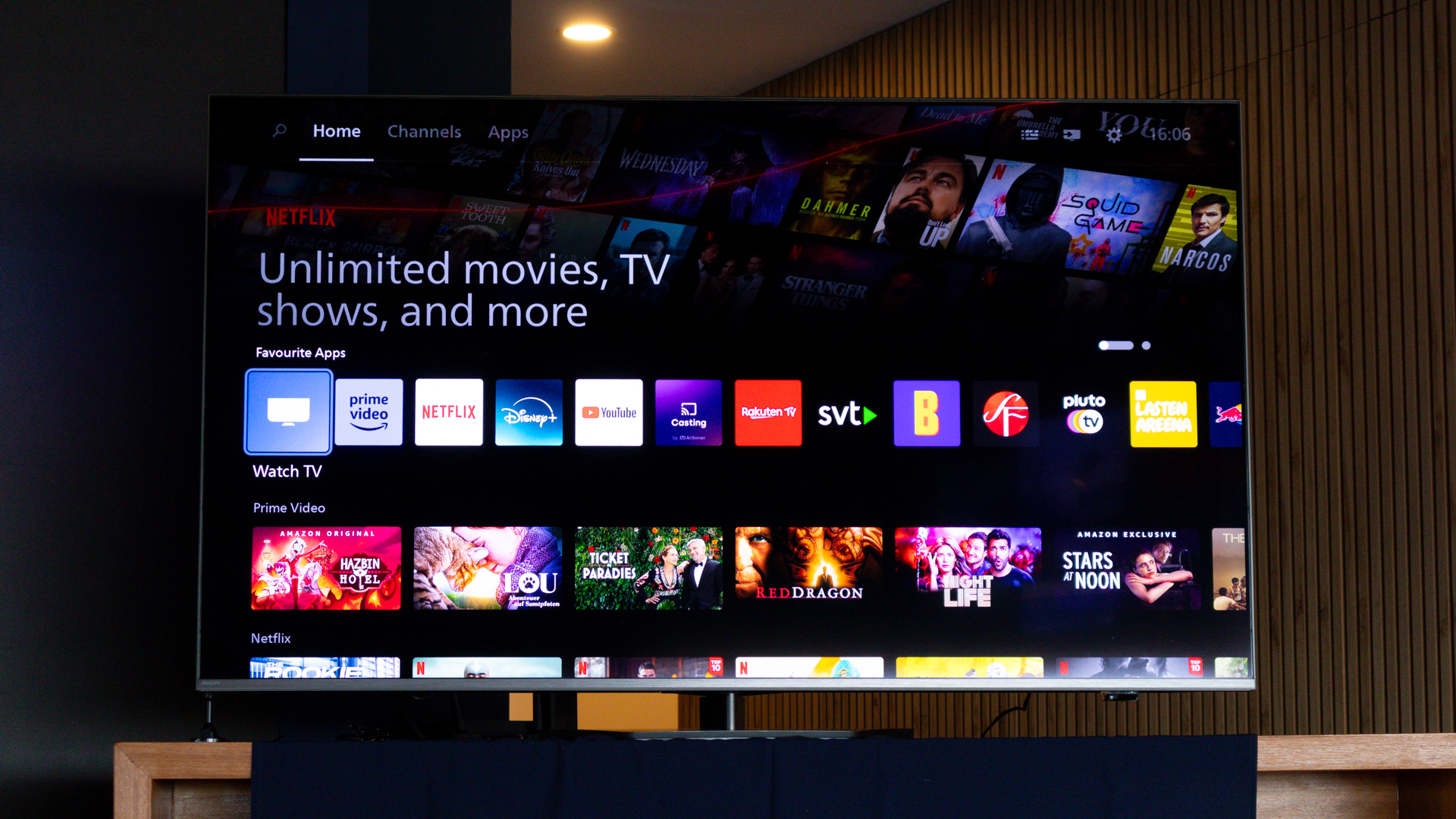I've seen the future for Philips TVs and I love this one thing most
Titan OS is coming to Philips TVs


Get all the latest news, reviews, deals and buying guides on gorgeous tech, home and active products from the T3 experts
You are now subscribed
Your newsletter sign-up was successful
Over the last few years, high-end Philips' Smart TVs have run on Android or Google TV, with another operating system driving the app experience on sets lower down the range.
That has most often been a platform called Saphi which, with all due respect, has proved clunky, complicated and sluggish in comparison with rivals. It also misses out a fair few apps and services (depending on your location).
Well, that's all about to change. TP Vision – the parent company of the Philips brand for AV products in Europe – has signed with Titan OS to drive its entry and mid-range TVs in future. And T3 got a chance to play with the new system ahead of launch.
The first thing that immediately strikes you about Titan OS is its speed – navigation is quick and simple, and getting into apps and services is extremely quick, especially on subsequent clicks.
That's because, while the homepage shows a healthy list of apps from the very first time you switch on your TV, none of them are actually pre-installed. The icons are essentially placeholders and the app is therefore installed the first time you click on it.
The best part though is that you don't see any installation options, and it takes just 5 to 8 seconds to do that in the background before the app loads and you can start to use it. I tested this with Netflix and it installed and was useable in around the same amount of time as my older Android TV set.
On top of that, it is far more intuitive and user friendly to not present an installation page between clicking on the icon and entering the app itself. The slight delay is perfectly acceptable without needing to show an installation notification too. Indeed, most users probably won't know it's even happening and will likely never care.
Get all the latest news, reviews, deals and buying guides on gorgeous tech, home and active products from the T3 experts
And then, the next time you click on Netflix, for example, it opens in around 2 to 3 seconds. That applies whenever you use an app after installation.
Not only does this make the experience more simple for the viewer, it ensures the menu system is swift. It also works with updates – the user will never be prompted to update an app before watching to stream a show or movie, it'll do it automatically.
I really do wish other operating systems operated in similar fashion.
Other features
Another neat feature of Titan OS is that it is customisable. You can move apps back and forth along the dedicated and prominent "Favourite Apps" rail and when you do, their own specific rails move up and down the homepage too.
For example, if you move Netflix to the farthest left on the apps row, its dedicated content rail with move to the first position on the homepage after the apps lineup (which always remains at the top).
The only exception is a "Watch TV" icon on the far left of Favourite Apps, that will always remain as it will jump into broadcast television.
And, although I didn't get to see it personally, whenever you attach a source to one of a TV's HDMI ports, that will also pop up next to Watch TV. Plus, if you have HDMI-CEC on the external device, you'll even see its name pop up.
That works with consoles too, so you can have a PS5 pop-up in the Favourite Apps rail just by switching it on. Or, alternatively, you can switch on the PS5 from the rail just by tapping that icon.
I was told that Titan OS will support the new British streaming platform Freely when that arrives in full, and it even has its own free-to-air IP channels baked into the system. And they'll appear on the same EPG as radio and terrestrial channels too.
But the main takeaway I got from it is just how easy it was to get to and access content, and that's really the point at the end of the day. While it looks nice too (similar to Google TV in some ways), it manages to remove unnecessary clicks during the content selection process and I applaud that.
I'm certainly looking forward to having a more thorough play with the system once it debuts on all Philips' 2024 Smart TVs up to and including the OLED 759 and OLED 769 in the coming months.
There are also plans to introduce it onto 2023 models before the end of this year, so your existing Philips set could be in for a great new upgrade too.

Rik is T3’s news editor, which means he looks after the news team and the up-to-the-minute coverage of all the hottest gadgets and products you’ll definitely want to read about. And, with more than 35 years of experience in tech and entertainment journalism, including editing and writing for numerous websites, magazines, and newspapers, he’s always got an eye on the next big thing.
Rik also has extensive knowledge of AV, TV streaming and smart home kit, plus just about everything to do with games since the late 80s. Prior to T3, he spent 13 years at Pocket-lint heading up its news team, and was a TV producer and presenter on such shows as Channel 4's GamesMaster, plus Sky's Games World, Game Over, and Virtual World of Sport.